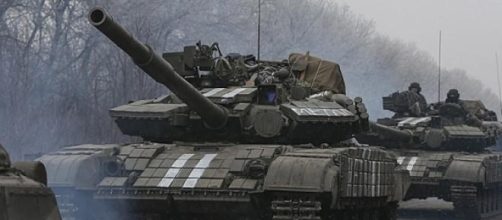After several weeks of intense fighting, the pro-Russian separatist groups have gained control of Debaltseve. The Ukrainian president, Petro Poroshenko, announced that, as of this morning, more than 80% of the 6,000 troops present in Debaltseve have already been evacuated. The Ukrainian troops had been virtually surrounded for over a week and the decision to retreat was all about "saving people's lives", said pro-governmental 'Krivbas' battalion commander, Mikola Kolesnik. The majority of the 25,000 Debaltseve inhabitants have been evacuated but reports indicate that more than 7,000 civilians are still trapped in the area.
Regaining control of Debaltseve is seen as an important strategic victory for the rebels, mostly because of its rail junction, that connects the two most important separatist strongholds, Donetsk and Luhansk.
According to pro-governmental 'Donbass' battalion commander, Semen Semenshenko, the evacuation mission, carried out this morning, came under heavy mortar and machine gun fire from separatist groups, blocking the roads out of the city and ambushing the retreating pro-governmental convoys. Medics in the area report that at least 20 soldiers have died and 90 more were wounded, while trying to leave the city.
The US Vice-President Joe Biden "strongly condemned" the violence and Russia, for violating the cease-fire deal signed in Minsk that went into effect last Sunday, 15th of February.
He was joined by several UN ambassadors, the British Prime-Minister David Cameron and EU foreign policy chief Federica Mogherini, that called for further sanctions and accused Russia of being responsible for the violation of the truce deal in Debaltseve. Moscow denies any responsibility or backing of the separatists.
The German Chancellor, Angela Merkel, condemned the rebel action in Debaltseve, considering it "a clear violation of the truce deal" but added that it was still too early to determine whether it had failed. In the rest of Ukraine, especially in the main front-lines, the cease-fire deal is seemingly being kept, with three days of no registered hostilities, aside from the conflict in Debaltseve.

